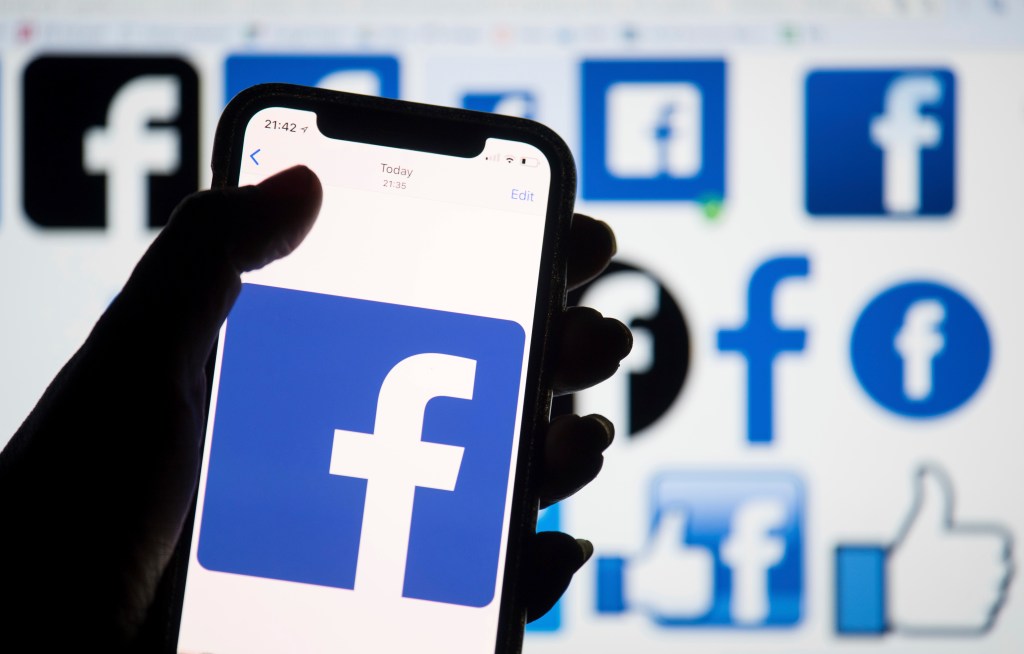Facebook, having repeatedly proven that it can’t be trusted to handle its users’ personal information, announced Tuesday that it wants to become a global payment giant by launching a digital currency in 2020.
The Facebook-led initiative, known as Libra, aims to provide a fast and easy way for people to transfer money around the world, using the company’s own services like Messenger and WhatsApp.
Videos by VICE
Facebook is initially pitching the service at the 1.7 billion people in the world without a bank account.
The initiative is Facebook-led but has signed up a coalition of 28 partners, including households names like Visa, Mastercard, PayPal, Uber and Lyft — who each coughed up $10 million to operate a Libra node, which gives them access to the data on the network
The Libra digital coin uses a distributed ledger technology known as blockchain, which is similar to the technology that underpins cryptocurrencies like bitcoin
Supporters believe Libra will be a tipping point, igniting wider adoption of cryptocurrencies such as bitcoin by lending the technology a certain level of credibility.
“People feel as if Libra coin is going to increase mass awareness of cryptocurrencies and what they are, and provide an on-ramp into the original cryptocurrencies,” Mati Greenspan, market analyst with eToro, told VICE News.
Facebook’s new Libra blockchain can support what are known as smart contracts, meaning developers can build services on top of Facebook’s platform — giving it another possibly lucrative revenue stream.
Bitcoin’s major attraction is that it’s decentralized, and the fact it’s not controlled by a bank or government. Libra, however, is not decentralized and is controlled by the not-for-profit Libra Association, leading some critics to question why Facebook needed to use Blockchain technology at all.
“I assumed this wouldn’t actually be a blockchain, because it would just be stupid to do their payment system as a blockchain,” David Gerard, author of “Attack of the 50ft Blockchain,” told VICE News. “I didn’t figure on the depths of human foolishness around promises of magical internet money.”
How will Libra work?
Facebook says that from next year users on its platforms will be able to buy the digital coin and store it in a digital wallet called Calibra, which lets you send and receive money.
Facebook says sending money around the world will be “as easily and instantly as you might send a text message.”
The cost will be “negligible” Facebook says, with a tiny fee built in to prevent the system being spammed by millions of fake transfers in a denial-of-service attack.
Key to its adoption, however, will be Calibra’s integration directly into Facebook Messenger and WhatsApp, instantly putting it in front of billions of users.
Who will use it?
Facebook’s marketing material for the Libra coin highlights that 31 percent of the world’s population don’t have access to a bank account, and it is these 1.7 billion people who Facebook will target.
The market for remittances — sending money around the world — is a hugely lucrative one, though there are already a number of major players in this market including WorldRemit and Kenya’s Mpesa.
But remittances are just the beginning.
“In time, we hope to offer additional services for people and businesses, such as paying bills with the push of a button, buying a cup of coffee with the scan of a code, or riding your local public transit without needing to carry cash or a metro pass,” Facebook says.
All of the launch partners are also expected to begin using the currency.
Facebook said it expected Libra would be bought and sold on currency markets in the future.
What About Fraud and Money Laundering?
In order to send and receive Libra, you will need to prove your identity to Facebook.
“When Calibra is available, you will need a government-issued ID to sign up for an account. Identity verification is important to comply with laws and prevent fraud, so you know people are who they say they are,” the Libra website says.
Verifying users’ identities is necessary to comply with anti-money laundering regulations, but Facebook has not said how it is going to implement this system, particularly in countries that don’t have government-issued identity cards.
“Compliance is the really hard and expensive part,” David Marcus, who is leading the Libra project at Facebook, told the BBC, without providing any further answers.
Critics say that meeting the standards required by regulators around the world will take more than mere aspirations.
“How can they bank millions of unbanked if they’re required to do Know Your Customer to international standards?” Gerard said. “None of their blockchain promises are coherent, or make sense, in the context of a properly regulated money transmission business.”
This is not bitcoin 2.0
Bitcoin was designed to take power out of the hands of giant corporations and governments by using a truly decentralized network that is private and trusted. Facebook’s implementation will be much more opaque.
At launch, only the 28 partners who have each paid $10 million to operate a node, allowing them to monitor the information flowing across the network, will be able to see the transactions.
Unlike bitcoin, which has swung from a low of $3,000 to a high of $9,000 in the last six months alone, Libra is what is known as a “stablecoin”, as it is backed by a basket of currencies and real assets such as government securities, meaning its value won’t fluctuate that much.
Will my data be safe?
Facebook says its Calibra subsidiary will keep financial and social data strictly separate and users won’t be targeted by adverts based on their shopping habits.
From a security perspective, Calibra will have built-in fraud protection, password recovery option, and multi-factor authentication. It will also have 24/7 customer support.
But after the Cambridge Analytica scandal, Facebook will need to convince its users that it can be trusted with their financial information — and it is banking on the fact that Libra is a collaborative effort to offset any privacy concerns.
“But by the time it comes to market next year, it won’t be a Facebook-controlled initiative. We’ll have the exact same voting rights as all the other members,” Marcus told the BBC.
Cover: File photo dated 25/03/18 of the Facebook logo displayed on a smartphone. Dominic Lipinski/PA Wire URN:42395277 (Press Association via AP Images)
More
From VICE
-

Photo: GK Hart/Vikki Hart / Getty Images -

Photo: ESA -

Screenshot: Jarrad Nolan / ATSB

